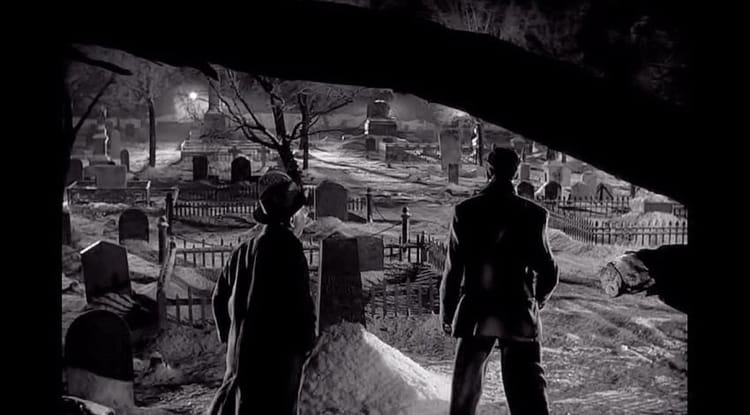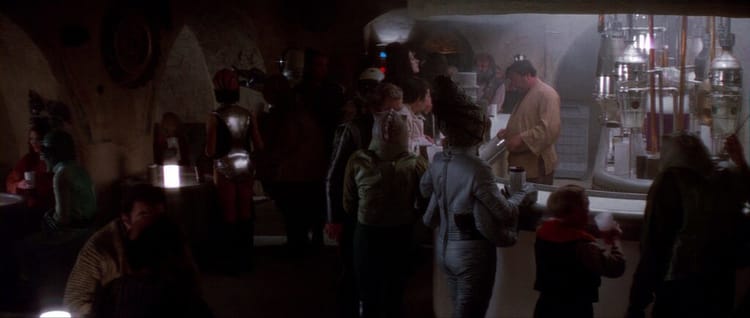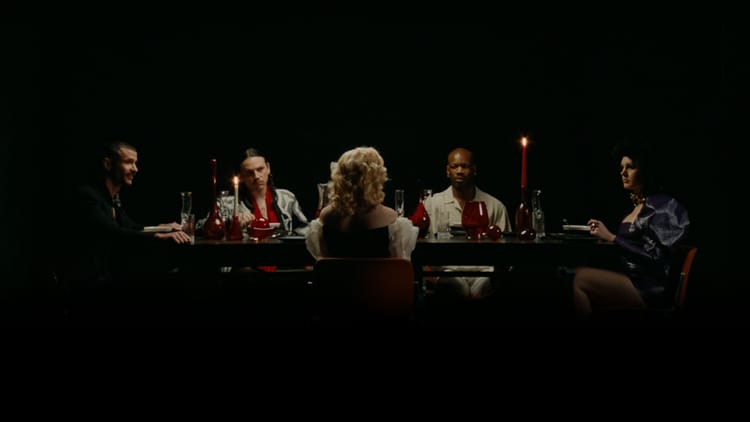Tongues Untied: LGBTQ+ People Aren't Going Back

Greetings friends,
This is a bit different than what I thought I would be posting next, but we're living in a different world now, aren't we? There have been a lot of bad election postmortems, but none so mendacious as scapegoating of 'wokeness' and particularly trans issues for Kamala Harris' election loss. This is ominous for an already vulnerable group whose rights will be targeted by the incoming administration. Today's entry is part of a broader action by LGBTQ+ (queer) people to keep Democratic politicians accountable.
I'm going to put the call to action right up front: call your senators and representatives, today if possible, and tell them not to backslide on queer rights. Even if you are represented by Republicans, let them know their queer constituents deserve safety and protection as much as any other. Tell them that if they don't support trans rights, they will not get your vote. You may think this will make no difference but it can; congresspeople want above all to get re-elected, and stressful phone calls from angry constituents are a much better barometer of voter preferences than people yelling on social media. Putting pressure on them gives them strong incentives to do the right thing. Kamala Harris' campaign slogan was "we're not going back," and we need to hold the Democrats to that standard.
For an example of what we refuse to go back to, read on.
I. American Outrage
The idea of a culture war is so taken for granted now that it's easy to forget it was none other than Pat Buchanan who laced it like fentanyl into the discourse. In his speech at the Republican National Convention for the 1992 presidential election, Buchanan endorsed his primary foe George H.W. Bush and then went on to declare:
My friends, this election is about more than who gets what. It is about who we are. It is about what we believe, and what we stand for as Americans. There is a religious war going on in this country. It is a cultural war, as critical to the kind of nation we shall be as was the Cold War itself, for this war is for the soul of America.
This rhetoric, both a declaration and weapon of war, which columnist Molly Ivins quipped "sounded better in the original German," would redefine American partisan politics. Yet it had already been deployed, with some success, in intra-party skirmishes. It was the general thrust of a TV ad Buchanan's campaign used against Bush during the Republican primary. An announcer guy voice menacingly intones that Bush had "invested our tax dollars in pornographic and blasphemous art, too shocking to show," which "glorified homosexuality, exploited children, and perverted the image of Jesus Christ." Beneath the voice and the accompanying text scroll plays, in a grimy yellow filter, footage of gay men in leather harnesses and assless chaps gyrating and walking the streets.
The context for this is a series of fights that played out starting in 1989 over the National Endowment of the Arts and the funding it provided so-called 'obscene art.' This included works like Immersion (Piss Christ) by Andres Serrano; the sexually explicit photography of Robert Mapplethorpe; and the source of the footage used in the Buchanan ad, Tongues Untied, directed by black artist and filmmaker Marlon Riggs. Funded in part by a $5,000 NEA grant, the film essay was aired on PBS affiliates in 1991, at which point it became a target of (straight, Christian) conservative rage.
Politicos like Buchanan and South Carolina senator Jesse Helms used words like 'pornography,' 'filth,' and 'obscenity' to describe it, words which continue to shape its reputation. To the extent that anyone in our period of media illiteracy has heard of Tongues Untied, it is in reference to these accusations, even if only to refute them. Like Salman Rushdie's The Satanic Verses, its value as a creative work has been overshadowed by the theocratic furor that erupted around it in 1989.[1] Like that work, it is in reality a richly expressive text, in conversation with a surrounding culture which instead demanded silence.
II. I Know Art When I See Art
The accusations against Tongues Untied of pornography—depictions of sex intended only for titilation, with no cultural or literary value—are galling for how easily they are disproven. It takes only seconds for the film to announce itself: a rhythmic chant of "brother to brother, brother to brother," a spoken word segment about tamping down the rage and humiliation of being denied entry to a jewelry store, a text montage of the killers of blacks and gays—Virginia Beach, crack, AIDS—while the cacophony of voices proclaims the danger of silence as unvoiced anger and pain. Hence the title, Tongues Untied.
What the film actually is, is somewhat difficult to pin down because it is constantly changing. It is for categorization considered a documentary, but it's closer to performance art. The film changes modes and moods constantly, a weary anecdote of discrimination ending with the racist interlocuter being finger-snapped, and then immediately transitioning to a tongue-in-cheek education about the various snaps at one's disposal. It is essentially a series of vignettes—raps, narratives, sketches, interviews—convey Riggs' journey to self-acceptance. By necessity it has some of the self-seriousness one imagines when the term "performance art" comes to mind, but it is also truly, deeply funny; and sad and inspiring and enraging. It is a vital work, both in importance and in being full of life.
The easy way it moves between styles and modes befits Riggs' story of navigating different worlds. He talks of feeling excluded throughout his life, first as a black man and then a gay man, and then as a black gay man and a gay black man.
The distinctions are necessary to catalogue the various levels of rejection and hostility. Societal animosity that regards gays as sex criminals and black men as property criminals is different, and expressed differently, from gays who regard black men as undesirable and black men who think gays are disgusting less-men. The Reagan administration's malign neglect of AIDS victims is different from that gay club bouncer insisting Riggs and his friends need three forms of ID to enter. This all leads to an internalized self-loathing, with one effect of it being a pursuit of white partners. By the end Riggs comes to love not only himself, but other black men, which he considers a revolutionary act.
Incurious outsiders may think this ridiculous hyperbole, but the outsized outrage surrounding the film proves Riggs was more right than he knew. There is sex in Tongues Untied, just as there is sex in life and art about life, which passes without comment. It is hardly explicit, and occupies a small percentage of a runtime over just over an hour. The footage sampled in Pat Buchanan's campaign ad shows nothing more scandalous than a bottom and was from a public, outdoor event that was entirely legal—which is probably what enraged Buchanan more than anything else. Riggs himself made such an observation in "Tongues Re-Tied," an essay reflecting on the controversy:
Among these would-be guardians of American culture, sexuality as such remains taboo: shrouded by even deeper layers of silence, stigma, and aversion is black heterosexuality. Black homosexuality, the triple taboo, equates in their minds with an unspeakable obscenity.
That Tongues Untied involves black gay sex made it pornography by definition to Buchanan and his ilk, who saw no value in black people or gays and therefore no cultural value in art about their experience. Of course they saw public funding for such work as a threat to white Christian supremacy. That they then formulated an explicitly sectarian campaign against it and everything it stands for was inevitable. Marlon Riggs knew this; the Democratic Party did not.
III. Vexed Populi
At the same time that the Republican id was breaking containment, the Democratic superego was asserting itself. After losing three consecutive presidential races, the dread neoliberal wing of the party, organized as the Democratic Leadership Council, aimed to rebuke the forces they believed had led it to failure: the unions, and the 1960s New Left anti-war and civil rights activists, most prominently represented by Jesse Jackson. To the DLC the future lay in courting the well-educated managerial middle class, and the white voters who the party had been hemorrhaging since the Civil Rights Movement. DLC head Bill Clinton won the 1992 Democratic primary and immediately signalled those priorities by denouncing the inflammatory remarks about the Rodney King riots of rapper Sister Souljah and calling for racial healing.
Clinton governed with a similar eye for compromise. A campaign promise to allow gays and lesbians in the military to serve openly became the mealy-mouthed Don't Ask, Don't Tell. Firebrand adulterer and Speaker of the House Newt Gingrich in January of 1995 called for the abolition of the NEA; Clinton met him halfway, cutting appropriations to the agency down from $162,311,000[2] to $99,470,000. When the Defense of Marriage Act (DOMA) was passed by Congress to deny federal recognition of same-sex marriages, Clinton groused not that enshrining discrimination in federal law was wrong, but that it was merely divisive and unnecessary. He signed it anyway.
The Democrats of today, following the November 5 election, find themselves once again in the wilderness. And once again they are being urged to repudiate the Left, this time in the form of 'wokeness,' particularly transgender issues, that are supposedly to blame. This is false and only serves to elide how Donald Trump and other Republicans are already in the process of attacking trans rights, building on two years of moral panic, villifying not just trans people but queer Americans broadly as "groomers". It is just the latest front in the culture war the right has been waging since Pat Buchanan gave voice to the hate that dares not speak its name, and Democrats need to treat it as such.[3]
Marlon Riggs is unavailable for comment; he died of AIDS complications in 1994 at the age of 37. However, we do have his response to Buchanan's ad, published as an opinion piece in the New York Times, "Meet The New Willie Horton." Its coda today rings truer than ever:
Needless to say, the insult in this brand of politics extends not just to blacks and gays, the majority of whom are taxpayers, and would therefore seem entitled to some measure of representation in publicly financed art.
The insult confronts all who now witness and are profoundly outraged by the quality of political — one hesitates to say Presidential — debate. The vilest form of obscenity these days is in our nation's leadership.
Iran's Supreme Leader Ruhollah Khomeini delivered his fatwa calling for the death of Rushdie in 1989, the year Tongues Untied was produced. ↩︎
This was already a nearly ten percent reduction from its $175,954,680 high in 1992. The agency would not receive that level of funding again until 2021. Current funding is on paper the highest it has ever been, $207,000,000, but adjusted for inflation that comes out to only around $103,629,000 in 1996 dollars, hardly more than the Clinton-Gingrich compromise. Parity with 1992 levels would be approximately $392,958,000. ↩︎
The Clinton compromises of the 1990s were not sufficient to appease the Religious Right. In 2003, Pennsylvania Senator Rick Santorum described Catholic priests' sexual abuse of minors as "normal homosexual relationships," and complained that a pending Supreme Court case that would strike down sodomy laws opened the door to "man on boy, man on dog." The following year, in a move that presaged today's trans panic, George W. Bush was re-elected on a campaign of fear and loathing of gay marriage that included endorsement of an amendment to the U.S. Constitution, with several states passing amendments of their own. After the Supreme Court struck down the Defense of Marriage Act (DOMA) in 2015, conservatives were put on the back foot but asked for the right for businesses to discriminate against queers as a consolation prize. Now that they enjoy a 6-3 Supreme Court majority, they are looking to overturn that 2015 decision and reinstate DOMA. ↩︎





Member discussion